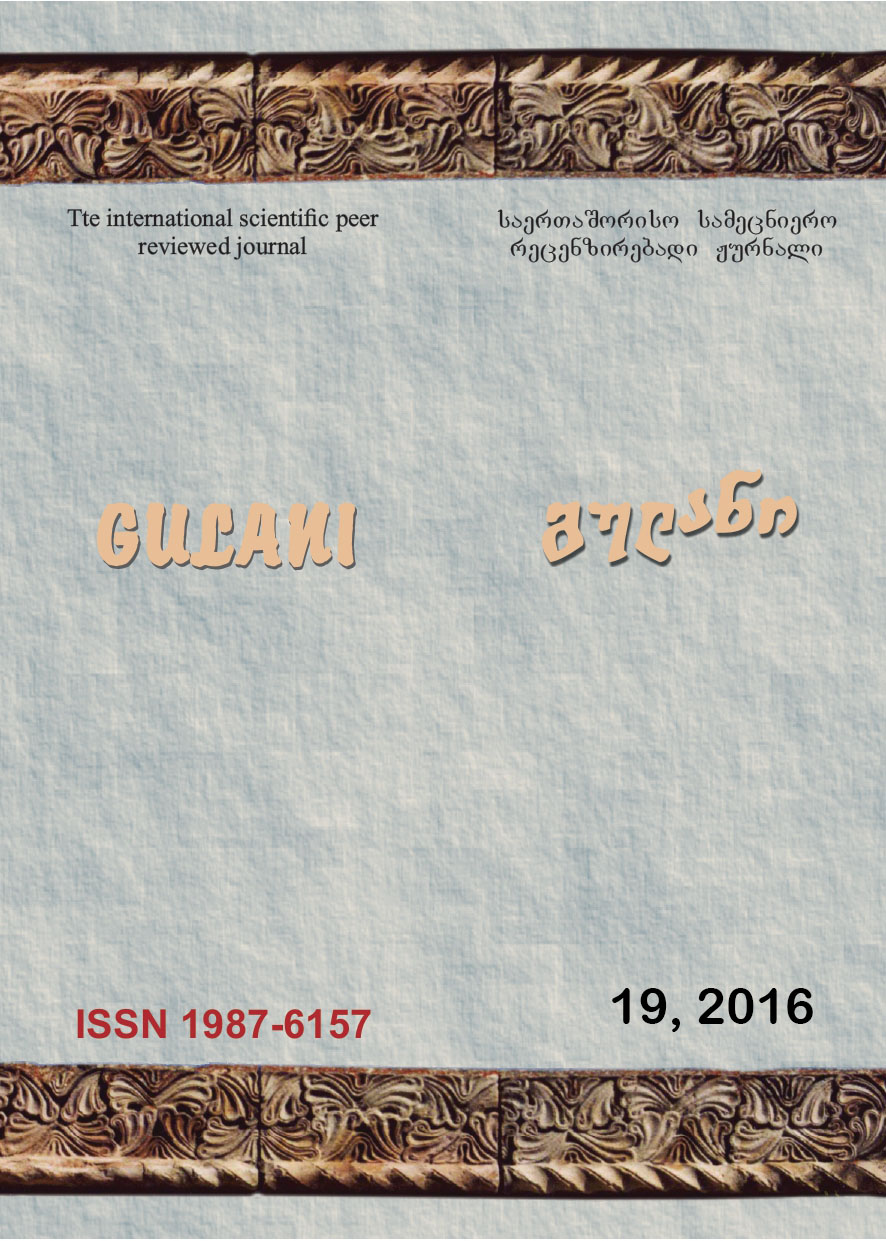ON TEACHING THE ERGATIVE CASE
Main Article Content
Abstract
It is known that the Georgian verb is the most difficult part of speech. It is diverse, exciting and limitless as well. As far as it is difficult to study it structurally and constructively, the more easily it can be studied, because each category of grammatical form of the verb has its sign, indicator or a marker, which gives us the possibility to divide the verb according to categories. The article aims to present the features and problems of the ergative case that occur in teaching the verb to non Georgians‘ speech and writing. The method offered by us is traditional and is called a method of teaching the verb dividing into categories. The interest to this issue is caused by the fact that, as it is known, the ergative case is characterized to some representatives of the Ibero-Caucasian language family. The ergative case does not exist in Indo-European languages. Therefore, the ergative case is the most difficult problem in learning Georgian languages.
The article deals with the stages that will support the teaching of the verb: transitivity, contributing to the person and constructions, series and screeves. When a student studies series and screeves, we will remind them once again the subjective and objective cases of transitive verbs not only according to the tenses, but according to the series and screeves to draw parallels with avtotivs.
